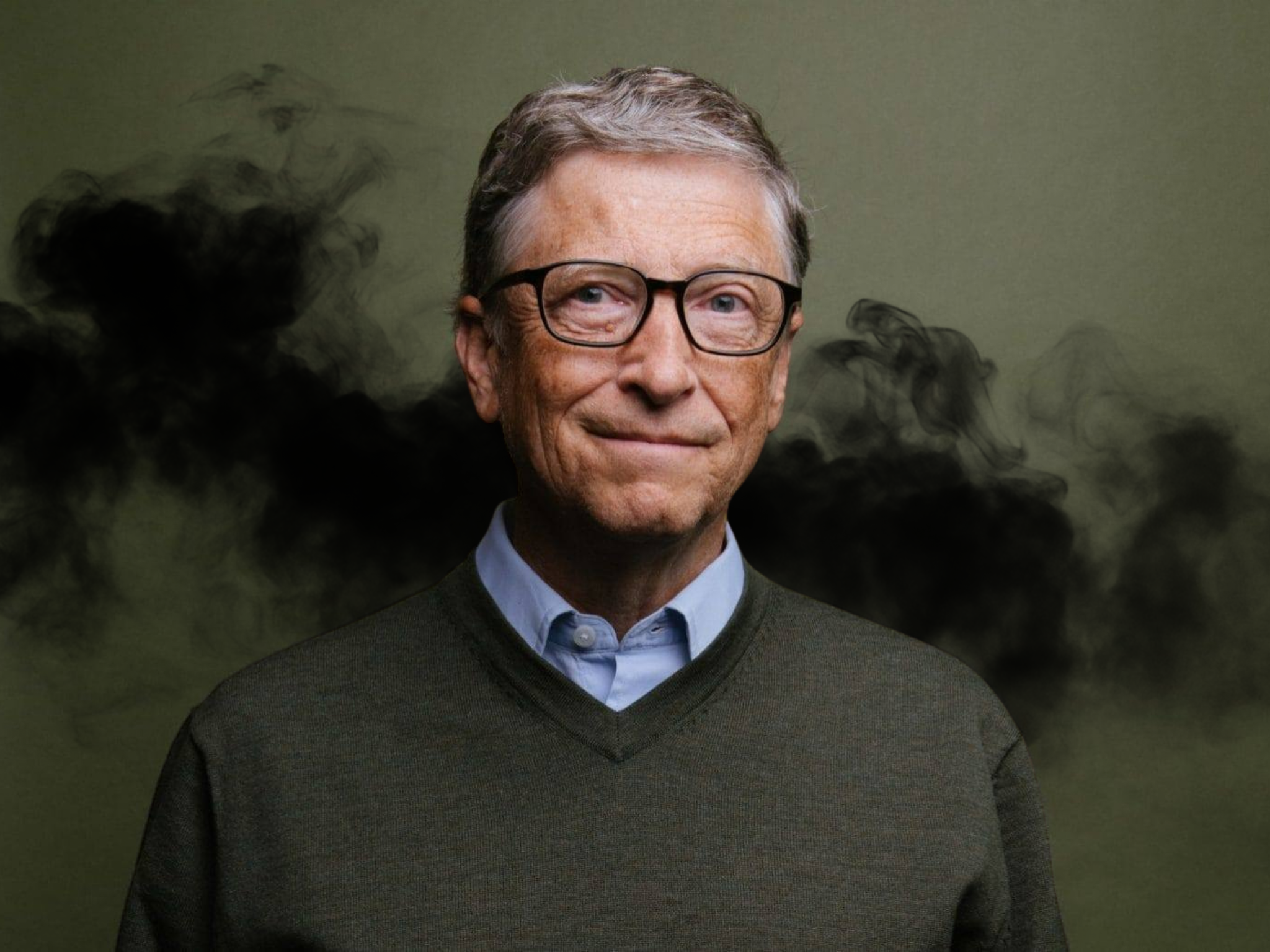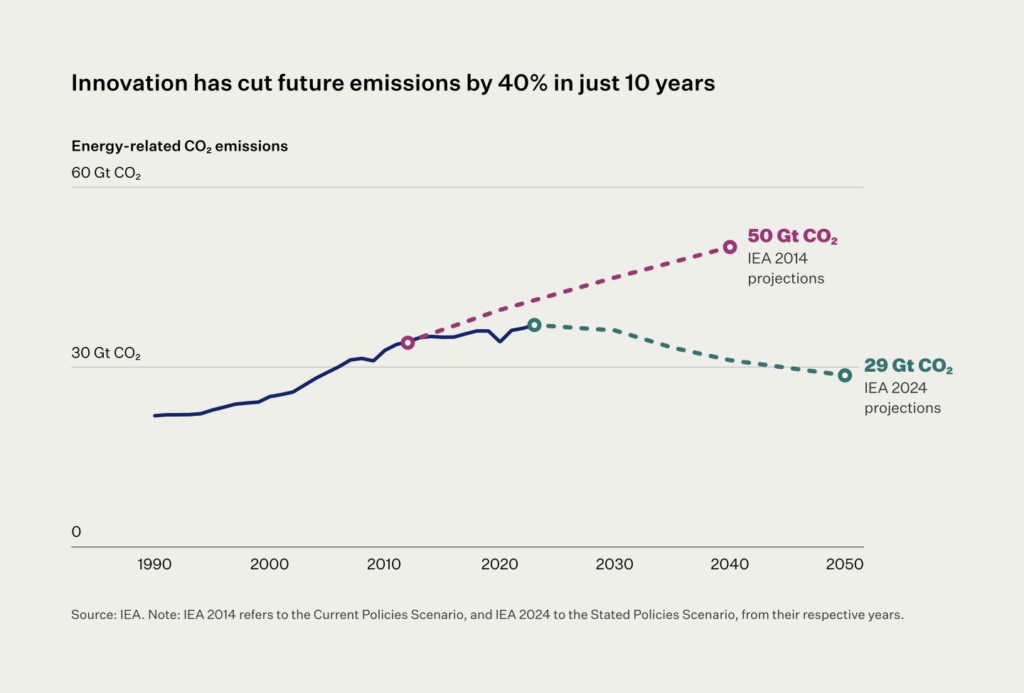
Bill Gates has warned against climate alarmism, calling for policies that shift focus from temperature and emission reductions to improving lives ahead of COP30.
This week, the head of the UN said the world has missed its 1.5°C target, warning of “devastating consequences” yet outlining that emissions cuts are still critical.
A day later, the most comprehensive report of its kind found that rising heat is causing the death of one person every minute globally.
So it’s more than surprising that Bill Gates, a man who has spent many of his billions raising alarms about the climate crisis, is now cautioning against climate alarmism.
In a new memo published on his website, Gates Notes, less than two weeks before the UN’s annual climate conference begins in Brazil, the Microsoft co-founder suggested that global climate strategy should pivot from tackling temperature rises to preventing disease and poverty.
He criticised the “doomsday outlook” of the climate crisis, which he believes focuses “too much on near-term emissions goals” and diverts resources from effective measures that can improve lives.
“Although climate change will have serious consequences – particularly for people in the poorest countries – it will not lead to humanity’s demise. People will be able to live and thrive in most places on Earth for the foreseeable future,” he wrote.
Gates’s memo can be seen in several ways. 1. He really has softened his stance on climate change and limiting emissions, 2. he’s trying to curb hostility by leading with optimism and repositioning a politically charged and culturally sensitive debate, or 3. he wants to focus more on filling the gap left by President Trump’s aid cuts.
The truth likely lies somewhere between these three intentions. And Gates knows it. “I know that some climate advocates will disagree with me, call me a hypocrite because of my own carbon footprint (which I fully offset with legitimate carbon credits), or see this as a sneaky way of arguing that we shouldn’t take climate change seriously,” he said.
COP30 must focus on spending money on the ‘right things’

The billionaire, who is skipping COP30, said the global climate summit was “an excellent place to begin” adopting a “different view” and adjusting our strategies. The annual event is notorious for convening thousands of fossil fuel and livestock lobbyists, who have ensured that their industries – the two most polluting ones – are protected from any declarations.
Although climate change will hurt poor people more than anyone else, for the vast majority of them, it will not be the only or even the biggest threat to their lives and welfare,” he argued.
“The biggest problems are poverty and disease, just as they always have been. Understanding this will let us focus our limited resources on interventions that will have the greatest impact for the most vulnerable people.”
Gates reiterated that climate change is “a very important problem” that “needs to be solved, along with other problems like malaria and malnutrition”. “Every tenth of a degree of heating that we prevent is hugely beneficial because a stable climate makes it easier to improve people’s lives,” he wrote.
It is especially important to get the most out of every dollar spent on supporting the least affluent populations. “The pool of money available to help them – which was already less than 1% of rich countries’ budgets at its highest level – is shrinking as rich countries cut their aid budgets and low-income countries are burdened by debt,” he said.
“I urge everyone at COP30 to ask: How do we make sure aid spending is delivering the greatest possible impact for the most vulnerable people? Is the money designated for climate being spent on the right things? I believe the answer is no.”
Bill Gates’s ‘three tough truths’ about climate change

Climate, disease and poverty are all major problems, and for the philanthropist, there are “three truths” that can help deal with them with maximum impact.
First, he said, climate change is a “serious problem”, but won’t be “the end of civilisation”. Gates acknowledged that we’re falling far short of our climate goals – most scientists think the world will exceed its 2°C budget by 2100. But innovation can help usher in change, with green energy and electric vehicles helping lower estimated emissions by 40% in the last decade.
Second: temperature isn’t the best way to measure climate progress. Instead, look at the UN’s Human Development Index (HDI). The 30 countries with the lowest HDI scores are home to one of every eight people, but produce just about “one-third of 1% of global GDP”. That inequity, in his mind, is why climate strategies need to prioritise human welfare.
“Climate change is not the biggest threat to the lives and livelihoods of people in poor countries, and it won’t be in the future,” said Gates. Poverty-related health problems, like malaria, TB, HIV/AIDS, respiratory infections, and complications from childbirth, kill about eight million people a year.
Finally, Gates believes health and prosperity are the best defence against climate change, citing research showing that projected deaths from climate change are halved when accounting for the economic growth of low-income countries. “The faster people become prosperous and healthy, the more lives we can save,” he said.
Gates suggested that “improvements in agriculture” should be at the top of our priorities, but instead of lower-emission production, he pointed to strategies to increase yields, develop climate-resilient crop varieties, and use AI to forecast weather and change cultivation plans.
“Lower emissions will eventually lead to fewer devastating losses, but today’s farmers don’t have time to wait for the climate to stabilise. They need to raise their incomes and feed their families now,” he said.
Gates offers priority climate solutions amid shifting priorities

With COP30 on the horizon, Gates notes that governments always announce commitments to lower emissions, but don’t outline the technologies that will help them do so. Innovations in each economic sector – electricity, agriculture, transportation, manufacturing and buildings – must get more visibility.
Industry representatives should report on progress towards affordable and practical zero-carbon innovations using the Green Premium – described as “the cost difference between clean and dirty ways of doing something” – as their yardstick.
He argued that the Green Premium should be reduced to zero, and asked governments to protect funding for clean technologies and the policies that promote them.
Gates also called for a more rigorous approach towards measuring impact. “Vaccines are the undisputed champion of lives saved per dollar spent,” he said, explaining how they can cost as little as $1,000 per life saved. “Every effort in the world’s climate agenda should undergo a similar analysis and be prioritised by its ability to save and improve lives cost-effectively.”
Here’s the thing, though: the tech pioneer has been slowly moving away from his climate initiatives. His green venture firm Breakthrough Energy announced significant cuts in March, including gutting its climate policy group. Two months later, he brought forward the planned closure of the Gates Foundation, which has pumped billions into the fight against climate change, including $1.4B in adaptation finance for farmers in low-income countries.
Infamously, despite a pledge to divest from the industry, his stake in fossil fuels increased by 30% between 2019 and 2030. The sector is also dear to Trump, and one philanthropy expert said Gates’s call to transition away from emissions reduction could likely be “a continuation of wanting to move to the centre and not wanting to be a target of the Trump administration”.
His new stance is at odds with that of UN secretary-general António Guterres. “It is absolutely indispensable to change course in order to make sure that the overshoot is as short as possible and as low in intensity as possible to avoid tipping points like the Amazon. We don’t want to see the Amazon as a savannah,” he said this week.
“But that is a real risk if we don’t change course and if we don’t make a dramatic decrease of emissions as soon as possible.”
The post Climate Change Kills A Person Every Minute, But Bill Gates Says It Won’t Cause ‘Humanity’s Demise’ appeared first on Green Queen.
This post was originally published on Green Queen.